Simon Brown
@simonabbrown.bsky.social
Philosopher of mind/cog sci studying animal minds, memory,
consciousness, temporal representation, & implications for animal ethics/policy.
Asst. Prof. @ Ashoka University, India. Formerly postdoc @ London School of Economics & Johns Hopkins University
consciousness, temporal representation, & implications for animal ethics/policy.
Asst. Prof. @ Ashoka University, India. Formerly postdoc @ London School of Economics & Johns Hopkins University
Feeling very excited, grateful, and fortunate to be moving to India today to become an Assistant Professor in Philosophy at Ashoka University!
In other news, just learned about the importance of the slogan 'Simon Go Back' to the Indian independence movement
In other news, just learned about the importance of the slogan 'Simon Go Back' to the Indian independence movement

August 11, 2025 at 10:27 AM
Feeling very excited, grateful, and fortunate to be moving to India today to become an Assistant Professor in Philosophy at Ashoka University!
In other news, just learned about the importance of the slogan 'Simon Go Back' to the Indian independence movement
In other news, just learned about the importance of the slogan 'Simon Go Back' to the Indian independence movement
Fascinated by how 'philosopher' is used outside academia. This N London park is named after a group of mid-C20th retirees who met regularly to chat, play sports, and help the community (including supervising air raid shelters during the Blitz) hornseyhistorical.org.uk/the-priory-p...

August 10, 2025 at 7:22 PM
Fascinated by how 'philosopher' is used outside academia. This N London park is named after a group of mid-C20th retirees who met regularly to chat, play sports, and help the community (including supervising air raid shelters during the Blitz) hornseyhistorical.org.uk/the-priory-p...
Heat map of most of my cycle journeys over the last year. Much to be done, but thanks to @hackneylcc.bsky.social @cycleislington.uk and others, much of the city feels incredibly safe already. Cycling as my primary mode of transport has saved 100s of hours and probably over £1000 this year alone

August 10, 2025 at 1:43 PM
Heat map of most of my cycle journeys over the last year. Much to be done, but thanks to @hackneylcc.bsky.social @cycleislington.uk and others, much of the city feels incredibly safe already. Cycling as my primary mode of transport has saved 100s of hours and probably over £1000 this year alone
Bonus: while in California last week for @pamba.bsky.social , I saw some flashes of blue which may or may not have been scrub jays, the stars of animal memory research. Unreasonably exciting for someone who doesn't live in their range. Here's the closest I came to capturing a picture 9/9
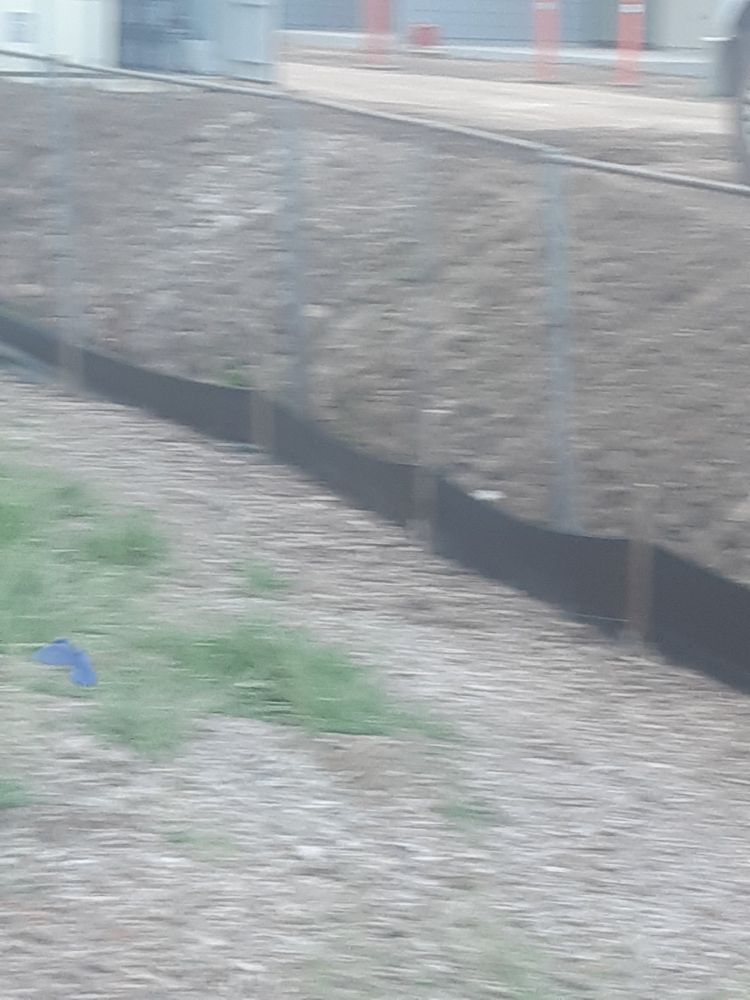
May 2, 2025 at 1:54 PM
Bonus: while in California last week for @pamba.bsky.social , I saw some flashes of blue which may or may not have been scrub jays, the stars of animal memory research. Unreasonably exciting for someone who doesn't live in their range. Here's the closest I came to capturing a picture 9/9
And as a Philosophy Compass article, we've aimed to write it in a way which is accessible to undergrads new to these issues, while still covering serious ground - and it's open access! 8/9
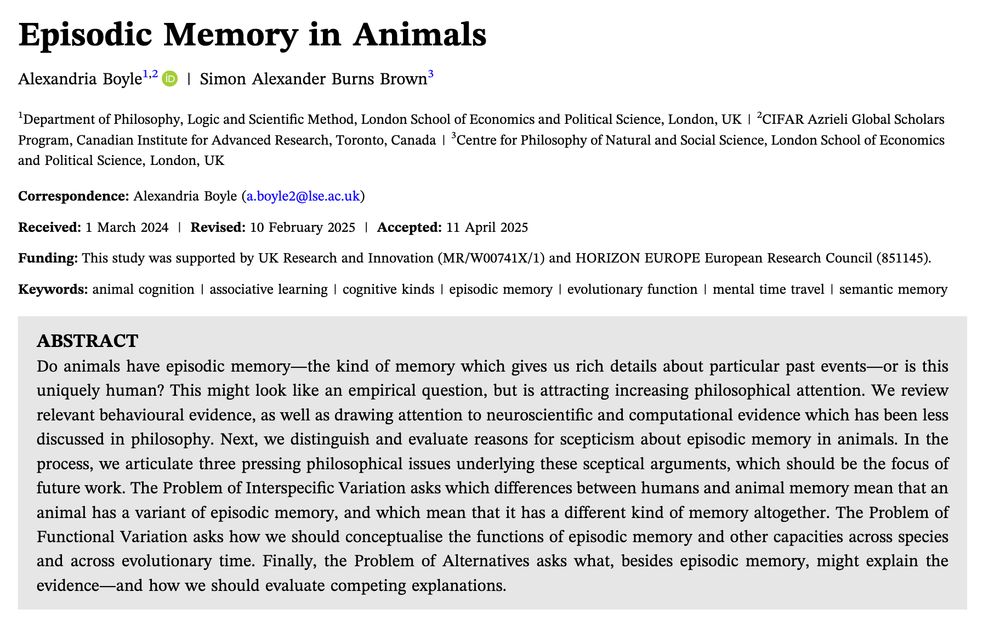
May 2, 2025 at 1:54 PM
And as a Philosophy Compass article, we've aimed to write it in a way which is accessible to undergrads new to these issues, while still covering serious ground - and it's open access! 8/9
We start with some very cool science. But the interpretation of all the empirical and computational work is hotly contested. We articulate 3 philosophical problems driving these disputes, with much broader significance. Our hope is to help crystallise a research agenda going forward... 2/9

May 2, 2025 at 1:54 PM
We start with some very cool science. But the interpretation of all the empirical and computational work is hotly contested. We articulate 3 philosophical problems driving these disputes, with much broader significance. Our hope is to help crystallise a research agenda going forward... 2/9
Seeing an old friend might prompt vivid memories of times you spent together. Do other animals have the same kind of memory - episodic memory? @aliboyle.bsky.social and I introduce philosophical issues around such questions in a new Phil. Compass piece doi.org/10.1111/phc3... 1/9
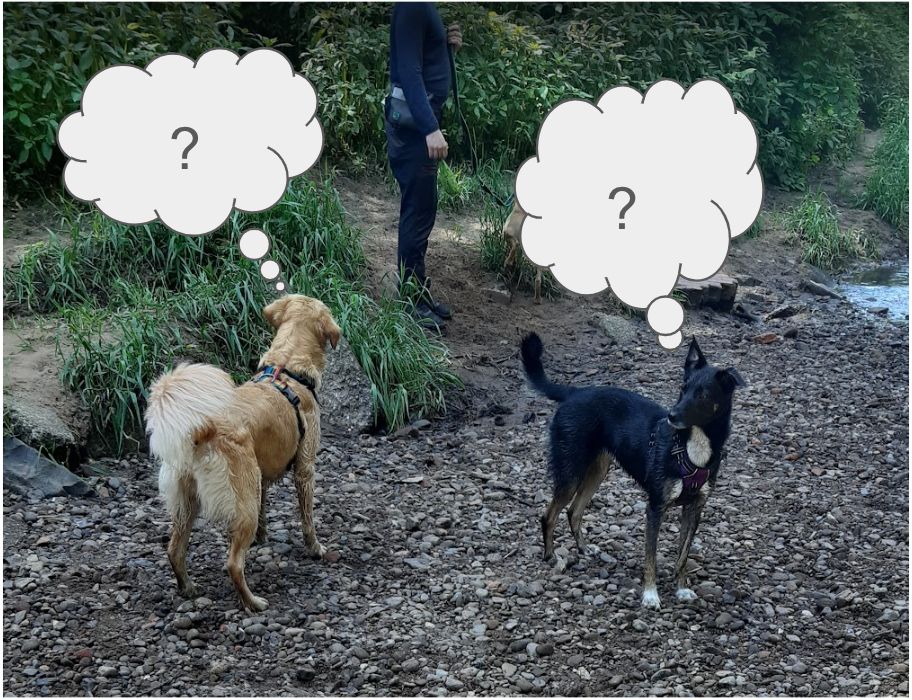
May 2, 2025 at 1:54 PM
Seeing an old friend might prompt vivid memories of times you spent together. Do other animals have the same kind of memory - episodic memory? @aliboyle.bsky.social and I introduce philosophical issues around such questions in a new Phil. Compass piece doi.org/10.1111/phc3... 1/9
@pamba.bsky.social unsurprisingly has some of the best non-human participants of any academic conference (and many great humans too)

April 27, 2025 at 1:26 AM
@pamba.bsky.social unsurprisingly has some of the best non-human participants of any academic conference (and many great humans too)
An exciting thing about your job being philosophy is that sometimes people send emails with headings that suggest they're having some kind of crisis, and then it turns out they're just scheduling meetings @birchlse.bsky.social

March 13, 2025 at 10:53 AM
An exciting thing about your job being philosophy is that sometimes people send emails with headings that suggest they're having some kind of crisis, and then it turns out they're just scheduling meetings @birchlse.bsky.social
Yet we do sometimes perform trade-offs by weighing up how good and bad experiences feel to us. So a trade-off *can* be evidence for sentience. Key is distinguishing possible mechanisms, and showing this trade-off is explained by a sentience-involving mechanism (9/11)
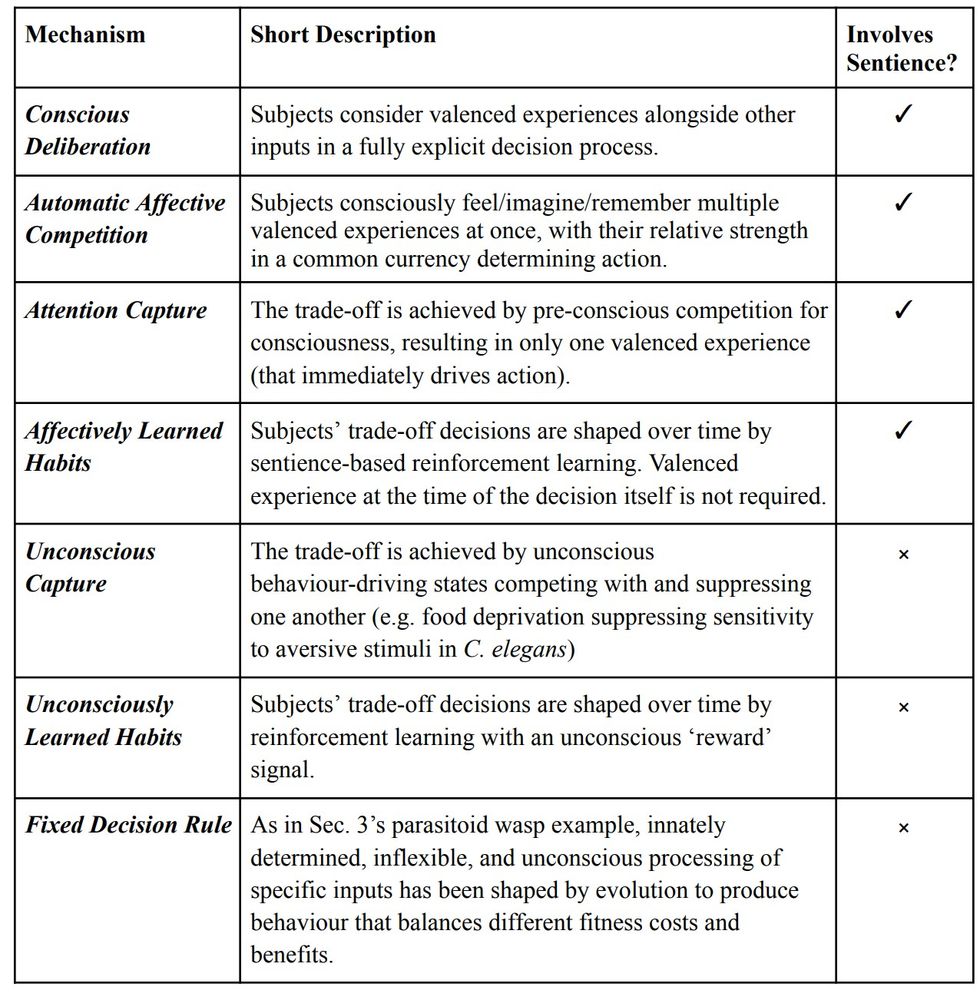
March 1, 2025 at 12:58 PM
Yet we do sometimes perform trade-offs by weighing up how good and bad experiences feel to us. So a trade-off *can* be evidence for sentience. Key is distinguishing possible mechanisms, and showing this trade-off is explained by a sentience-involving mechanism (9/11)
Problem 2: some trade-offs are carried out by extremely simple mechanisms with no connection to sentience. In tiny nematode worms, simple interactions between just 2-3 neurons responding directly to chemical concentrations can explain certain trade-off behaviours (7/11)
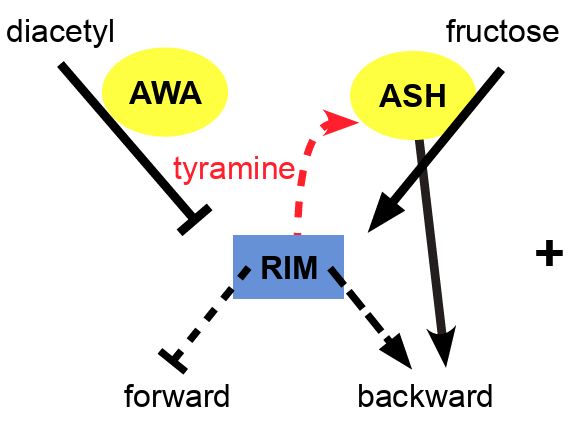
March 1, 2025 at 12:58 PM
Problem 2: some trade-offs are carried out by extremely simple mechanisms with no connection to sentience. In tiny nematode worms, simple interactions between just 2-3 neurons responding directly to chemical concentrations can explain certain trade-off behaviours (7/11)
Bees tolerate higher levels of heat to feed from a feeder where they have previously received higher levels of sugar. Is this because they consciously feel pain and weigh it up against expected felt pleasure? (4/11)
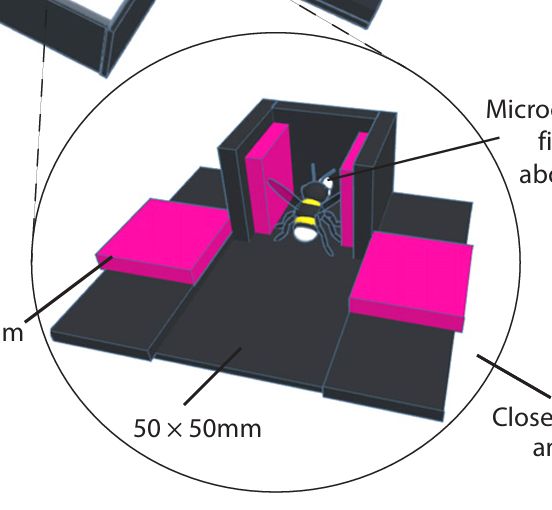
March 1, 2025 at 12:58 PM
Bees tolerate higher levels of heat to feed from a feeder where they have previously received higher levels of sugar. Is this because they consciously feel pain and weigh it up against expected felt pleasure? (4/11)
Hermit crabs choose their shells according to all kinds of factors. They are less likely to give up a better shell when given mild electric shocks. Do they consciously feel the the shock as painful and weigh it against +ve feelings about the shell? (3/11)

March 1, 2025 at 12:58 PM
Hermit crabs choose their shells according to all kinds of factors. They are less likely to give up a better shell when given mild electric shocks. Do they consciously feel the the shock as painful and weigh it against +ve feelings about the shell? (3/11)
We don't know which animals are sentient, i.e. consciously experience positive and negative states like pleasure and pain. Recent reports about fish, insects, crustaceans, octopuses etc. combine several lines of evidence, with motivational trade-offs amongst the most prominent (2/11)

March 1, 2025 at 12:58 PM
We don't know which animals are sentient, i.e. consciously experience positive and negative states like pleasure and pain. Recent reports about fish, insects, crustaceans, octopuses etc. combine several lines of evidence, with motivational trade-offs amongst the most prominent (2/11)
When and why are motivational trade-offs evidence of sentience? New paper with @birchlse.bsky.social forthcoming at Phil. Trans. Roy. Soc. B and available to download for free here: philpapers.org/rec/BROWAW-10 (1/11)

March 1, 2025 at 12:58 PM
When and why are motivational trade-offs evidence of sentience? New paper with @birchlse.bsky.social forthcoming at Phil. Trans. Roy. Soc. B and available to download for free here: philpapers.org/rec/BROWAW-10 (1/11)
Organised by me, Ross Pain (seen here inspecting spiders in the museum's vaults, with various specimens in the background), and Giulia Palazzolo, with funding from the Institute of Philosophy and help from an amazing team of scientists and others! More here: www.bristolmuseums.org.uk/whats-on/bri...

October 24, 2024 at 4:26 PM
Organised by me, Ross Pain (seen here inspecting spiders in the museum's vaults, with various specimens in the background), and Giulia Palazzolo, with funding from the Institute of Philosophy and help from an amazing team of scientists and others! More here: www.bristolmuseums.org.uk/whats-on/bri...
Excited to announce a free children's event in November at
Bristol Museum and Art Gallery, introducing the weird and wonderful senses of different animals and the philosophical puzzles they raise, through the museum's specimens (including a terrific platypus!), VR, art activities, games, and more
Bristol Museum and Art Gallery, introducing the weird and wonderful senses of different animals and the philosophical puzzles they raise, through the museum's specimens (including a terrific platypus!), VR, art activities, games, and more

October 24, 2024 at 4:20 PM
Excited to announce a free children's event in November at
Bristol Museum and Art Gallery, introducing the weird and wonderful senses of different animals and the philosophical puzzles they raise, through the museum's specimens (including a terrific platypus!), VR, art activities, games, and more
Bristol Museum and Art Gallery, introducing the weird and wonderful senses of different animals and the philosophical puzzles they raise, through the museum's specimens (including a terrific platypus!), VR, art activities, games, and more
Very optimistic about the future of philosophy of animal minds after a terrific few days of talks and discussion with early career researchers from all around the world at the LSE!

April 18, 2024 at 4:49 PM
Very optimistic about the future of philosophy of animal minds after a terrific few days of talks and discussion with early career researchers from all around the world at the LSE!
Registration is now open for online and in person attendance at our Early Career Workshop in Animal Minds at the LSE on 16-17 April! Registration required by April 8. See here for more details, abstracts, schedule, and registration: sites.google.com/view/ecrwani...

March 20, 2024 at 9:07 AM
Registration is now open for online and in person attendance at our Early Career Workshop in Animal Minds at the LSE on 16-17 April! Registration required by April 8. See here for more details, abstracts, schedule, and registration: sites.google.com/view/ecrwani...
...it implies that experience in the periphery is rich but highly unstable, with noise leading to "flickers" of experience in the periphery! I argue this is a feature rather than a bug for the view: there are systematic reasons to think we would fail to notice such flickers 6/7

December 28, 2023 at 11:09 AM
...it implies that experience in the periphery is rich but highly unstable, with noise leading to "flickers" of experience in the periphery! I argue this is a feature rather than a bug for the view: there are systematic reasons to think we would fail to notice such flickers 6/7
Recent results suggest the phenomenon may relate to "inflation": for potential stimuli in the periphery, even weak signals are enough for us to say we saw something (in Signal Detection Theory: we have more liberal criteria). But what does this mean for our experience? 3/7
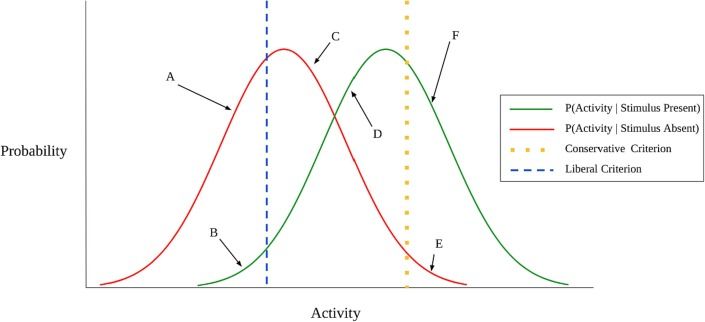
December 28, 2023 at 11:08 AM
Recent results suggest the phenomenon may relate to "inflation": for potential stimuli in the periphery, even weak signals are enough for us to say we saw something (in Signal Detection Theory: we have more liberal criteria). But what does this mean for our experience? 3/7
New paper (open access) in #Consciousness and Cognition! How rich is conscious visual experience? The evidence is fundamentally ambiguous. Different interpretations of the evidence all have surprising consequences for how experience unfolds over time 1/7
doi.org/10.1016/j.co...
doi.org/10.1016/j.co...

December 28, 2023 at 11:07 AM
New paper (open access) in #Consciousness and Cognition! How rich is conscious visual experience? The evidence is fundamentally ambiguous. Different interpretations of the evidence all have surprising consequences for how experience unfolds over time 1/7
doi.org/10.1016/j.co...
doi.org/10.1016/j.co...
Philosophers should co-author more. One unsung advantage: if you get bored while writing, you can lightly troll your co-author

October 13, 2023 at 1:56 PM
Philosophers should co-author more. One unsung advantage: if you get bored while writing, you can lightly troll your co-author

